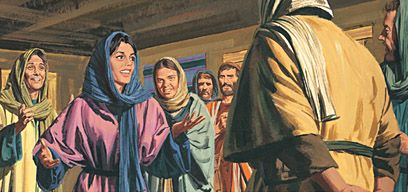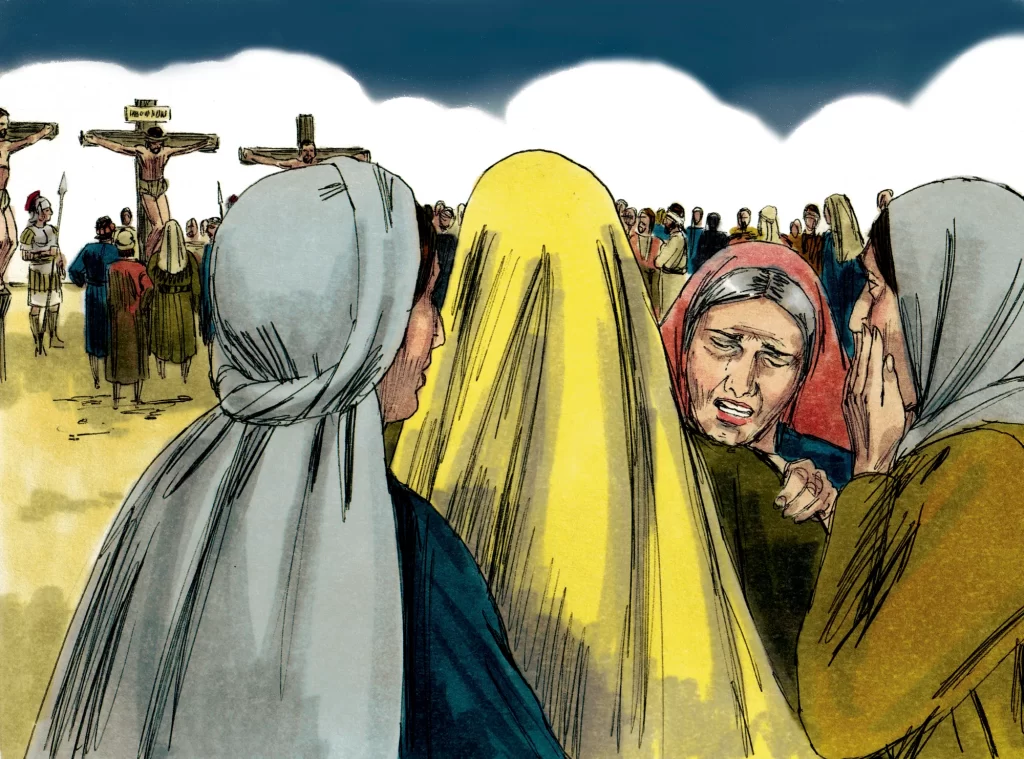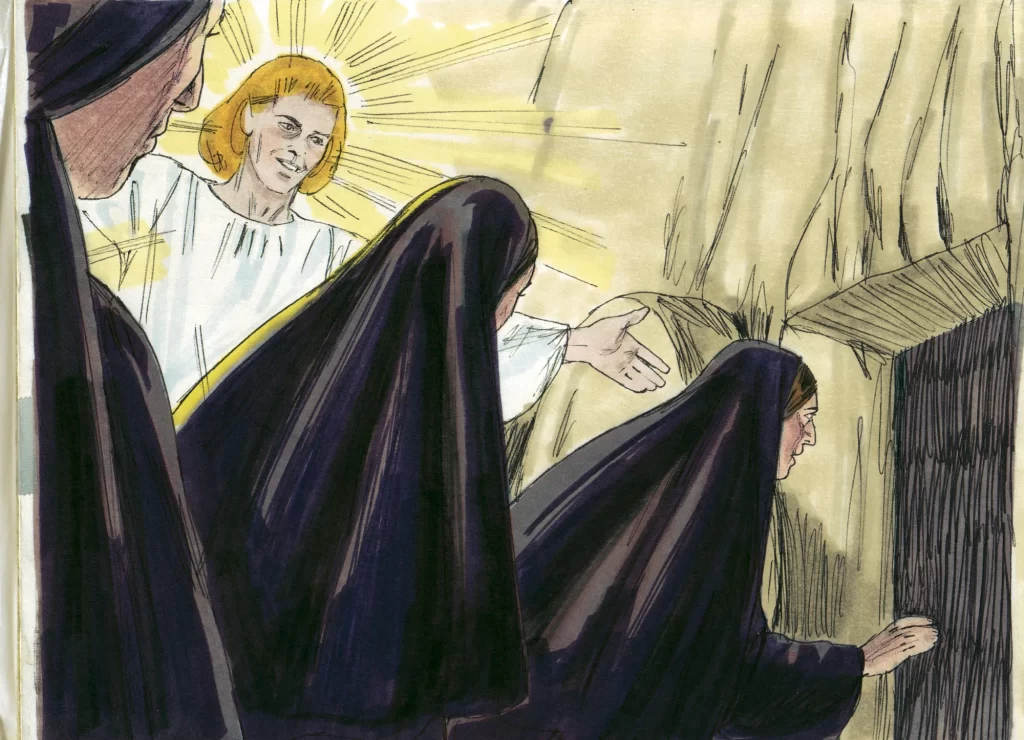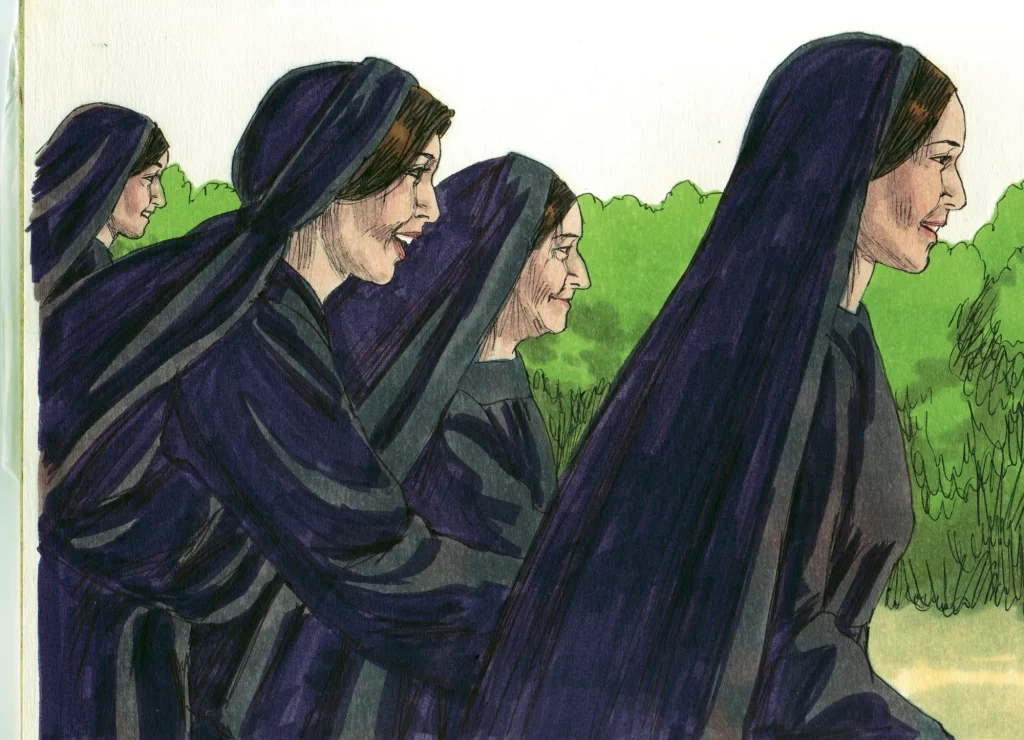Luke 3:19-20, 8:2-3; 23: 52-56;24:10. Mark 6: 14-29.
“What can I do?” Joanna asked, speaking aloud to no one in particular. She was alone at home.
Her mind was brimming with a multitude of ways she could show her gratitude to Jesus for healing her. For years she had suffered in silence. But that day she met Jesus, her life changed drastically and completely.
Joanna was one of several women Jesus had healed of “evil spirits and diseases.” There was Susanna. Mary called Magdalene had seven demons come out of her when she encountered the man claiming to be the Son of God. Joanna was happy to be among such bold women, unintimidated by Jewish traditions and the strict social divisions of the day. They all needed help and found it in Jesus, not in the temple or positions they held or the money they made.
Now, here she sat at home in Tiberias, the capital of Galilee, in her right mind. HEALED. She felt a strong compulsion, a duty to accompany Jesus and the 12 disciples on their travels from town to town.
As the wife of Chuza, the manager of Herod Antipas’ household estate, she had the time as well as the means to support the Lord’s ministry. But she asked herself, “don’t I also have an obligation to my husband?”
With that question in mind, Joanna humbly approached Chuza at a time when he was in a good mood. She succeeded in getting the answer she wanted. She praised God as she prepared to accompany Jesus on several of his preaching tours.

Traveling with Jesus and his entourage, helping to provide food and supplies for the missionary troupe from her own wealth gave Joanna purpose. Listening to Jesus’ teachings strengthened her faith and gave her the wisdom she needed to survive in first-century Judaism when it was thought to be scandalous for women, especially a married woman, to travel with the group as she did.
But Jesus was different from the other men in her day. He welcomed women like Joanna into His inner circle, calling women disciples as he did the men. Women were full members as Jesus granted them access to knowledge and leadership positions. He paved the way for a more inclusive and egalitarian society. Joanna willingly discarded her aristocratic social position when she chose to follow Jesus and associate with His disciples. Unintentionally, Joanna’s life served as an example of how the gospel demolishes class barriers and social prejudices.
As Joanna traveled, Chuza diligently managed Herod Antipas’ household. Neither he nor his wife understood the irony of it all. At first, he was unaware of Herodian’s general hatred for Jesus. Later, he just decided to keep his wife’s activities secret. Afterall, women were ignored; Joanna’s work with Jesus was considered unimportant.
Herod the Great had become king of Judea. His son Antipas officially ruled Galilee and Perea as a client state of the Roman Empire. Antipas’ title was tetrarch, meaning He governed one of four divisions of the country in Greco-Roman antiquity. He was Herod the Great’s son by the Samarian Malthace, while Herod II was his son by Mariamne.
Antipas was responsible for building projects at Sepphoris and Betharamphtha, and for the construction of his capital Tiberias on the western shore of the Sea of Galilee.
All was well for Antipas until he divorced his first wife Phasa’el, the daughter of King Aretas IV of Nabatea, and married Herodias, who had formerly been married to his half-brother Herod Philip II.
Meanwhile, John the Baptist, a cousin to Jesus, paved the way for Jesus to begin his public ministry by baptizing Him. John had been preaching in the wilderness, and thousands flocked to hear him. He had no problem speaking truth to power and rebuked Herod for his adulterous marriage.
“But when John rebuked Herod the tetrarch because of his marriage to Herodias, his brother’s wife, and all the other evil things he had done, Herod added this to them all: he locked John up in prison,” according to Luke 3:19-20 NIV.
Herod succeeded in killing John: Mark 6: 14-29. Tradition holds Joanna recovered John the Baptist’s head after Herodias had disposed of it.
Jesus was next. He was arrested in Jerusalem and first brought before Pontius Pilate for trial. Pilate was the governor of Roman Judea. and initially handed Jesus over to Antipas because He had been most active in his territory. But Antipas sent him back to Pilate’s court.

Joanna was overcome with gut-wrenching emotions when she heard that Jesus was ordered to be crucified on Golgotha’s Hill. She joined Jesus’ mother Mary and a few other women at the crucifixion and the burial. Joseph of Arimathea, a wealthy and honored member of the Jewish high council, claimed Jesus’ body and laid it in a new tomb: Luke 23: 52-56.
Joanna and the other Galilean women followed Joseph to the tomb so they would know exactly where to find Jesus’ body when they returned after the Sabbath with their spices and perfumes. Reluctantly, the women went home and kept the Sabbath as the law required, from sundown Friday to sundown Saturday, before gathering up their spices and perfumes and returning to the tomb.
When Joanna and the others discovered the empty tomb, two angels reminded them of Jesus’ instructions during his teaching sessions.
“Remember how he told you, while he was still in Galilee, that the Son of Man must be delivered into the hands of sinful men and be crucified and on the third day rise,” according to Luke 24: 6-7.
“And they remembered his words,” Luke 24:8.
“Yes, yes, YES,” they squealed in excitement and ran to report the news to the apostles, according to Luke 24:10.

Who thinks of tradition during such a momentous occasion? The women certainly didn’t realize that being the first at the scene of the empty tomb and the first to share the Good News was a break from the traditions of a patriarchal society. During that time, women’s testimonies were not accepted in court because females were seen as unreliable witnesses.
But Jesus already had started to change traditions and reject cultural norms of His day. His ministry had included all types of people, women as well as men, rich and the poor, fishers, young and old, single and married, the powerful as well as the powerless. To be welcomed in God’s kingdom, all anyone had to do was recognize his or her need for Jesus and choose to devote his or her life to Christ.
Joanna, Koine in Greek and means Yahweh has been gracious, had the privilege of being one of the first people to share the good news of Christ’s resurrection.

SOURCES:
- Henderson, Melissa. Who was Joanna in the Bible? Healed and Believed in Christ. April 2024. Christianity Ministries. https://Christianity.com
- Herod Antipas, Wikipedia
- Joanna, wife of Chuza. Wikipedia.
- Luke 24:10: Westcott and Hort, The New Testament in the Original Greek/Nestle-Aland Novum Testamentum Graece, 27th edition variants (https://biblehub.com/whvar/luke/24.htm).
- Phillips, Adam. The Untold Story of Joanna: A Powerful Woman in the New Testament. August 2024. The Witness – Christianity at your Fingertips. https://TheWitness.org
- Thomas, Leigh Ann. Why Joanna Teaches Us about the Importance of Supporting Missionaries. June 2021. Crosswalk Ministries. https://www.crosswalk.com/
- “Who was Joanna in the Bible?” God Questions Ministries. www.GotQuestions.org



